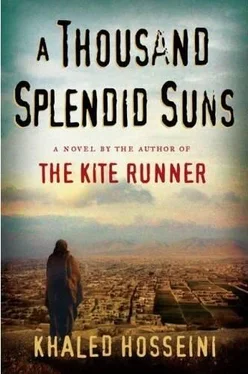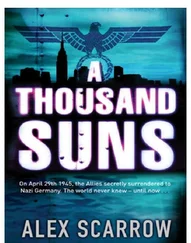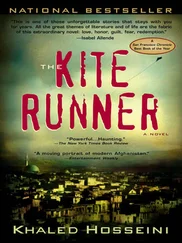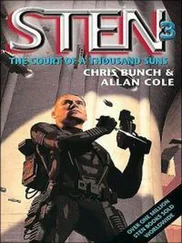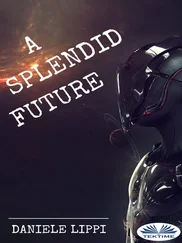Mariam concentrated on these things, these landmarks. She feared she might lose her nerve if she let her mind wander.
Every few minutes, jeeps and taxis drove up to the hotel entrance. Doormen rushed to greet the passengers, who were all men, armed, bearded, wearing turbans, all of them stepping out with the same self-assured, casual air of menace. Mariam heard bits of their chatter as they vanished through the hotel's doors. She heard Pashto and Farsi, but Urdu and Arabic too.
"Meet our real masters," Rasheed said in a low-pitched voice. "Pakistani and Arab Islamists. The Taliban are puppets. These are the big players and Afghanistan is their playground."
Rasheed said he'd heard rumors that the Taliban were allowing these people to set up secret camps all over the country, where young men were being trained to become suicide bombers and jihadi fighters.
"What's taking him so long?" Mariam said.
Rasheed spat, and kicked dirt on the spit.
An hour later, they were inside, Mariam and Rasheed, following the doorman. Their heels clicked on the tiled floor as they were led across the pleasantly cool lobby. Mariam saw two men sitting on leather chairs, rifles and a coffee table between them, sipping black tea and eating from a plate of syrup-coated jelabi, rings sprinkled with powdered sugar. She thought of Aziza, who loved jelabi, and tore her gaze away.
The doorman led them outside to a balcony. From his pocket, he produced a small black cordless phone and a scrap of paper with a number scribbled on it. He told Rasheed it was his supervisor's satellite phone.
"I got you five minutes," he said. "No more."
"Tashakor," Rasheed said. "I won't forget this."
The doorman nodded and walked away. Rasheed dialed. He gave Mariam the phone.
As Mariam listened to the scratchy ringing, her mind wandered. It wandered to the last time she'd seen Jalil, thirteen years earlier, back in the spring of 1987. He'd stood on the street outside her house, leaning on a cane, beside the blue Benz with the Herat license plates and the white stripe bisecting the roof, the hood, and trunk. He'd stood there for hours, waiting for her, now and then calling her name, just as she had once called his name outside his house. Mariam had parted the curtain once, just a bit, and caught a glimpse of him. Only a glimpse, but long enough to see that his hair had turned fluffy white, and that he'd started to stoop. He wore glasses, a red tie, as always, and the usual white handkerchief triangle in his breast pocket. Most striking, he was thinner, much thinner, than she remembered, the coat of his dark brown suit drooping over his shoulders, the trousers pooling at his ankles.
Jalil had seen her too, if only for a moment. Their eyes had met briefly through a part in the curtains, as they had met many years earlier through a part in another pair of curtains. But then Mariam had quickly closed the curtains. She had sat on the bed, waited for him to leave.
She thought now of the letter Jalil had finally left at her door. She had kept it for days, beneath her pillow, picking it up now and then, turning it over in her hands. In the end, she had shredded it unopened.
And now here she was, after all these years, calling him.
Mariam regretted her foolish, youthful pride now. She wished now that she had let him in. What would have been the harm to let him in, sit with him, let him say what he'd come to say? He was her father. He'd not been a good father, it was true, but how ordinary his faults seemed now, how forgivable, when compared to Rasheed's malice, or to the brutality and violence that she had seen men inflict on one another.
She wished she hadn't destroyed his letter.
A man's deep voice spoke in her ear and informed her that she'd reached the mayor's office in Herat.
Mariam cleared her throat. "Salaam, brother, I am looking for someone who lives in Herat. Or he did, many years ago. His name is Jalil Khan. He lived in Shar-e-Nau and owned the cinema. Do you have any information as to his whereabouts?"
The irritation was audible in the man's voice. "This is why you call the mayor's office?"
Mariam said she didn't know who else to call. "Forgive me, brother. I know you have important things to tend to, but it is life and death, a question of life and death I am calling about."
"I don't know him. The cinema's been closed for many years."
"Maybe there's someone there who might know him, someone-"
"There is no one."
Mariam closed her eyes. "Please, brother. There are children involved. Small children."
A long sigh.
"Maybe someone there-"
"There's a groundskeeper here. I think he's lived here all of his life."
"Yes, ask him, please."
"Call back tomorrow."
Mariam said she couldn't. "I have this phone for five minutes only. I don't-"
There was a click at the other end, and Mariam thought he had hung up. But she could hear footsteps, and voices, a distant car horn, and some mechanical humming punctuated by clicks, maybe an electric fan. She switched the phone to her other ear, closed her eyes.
She pictured Jalil smiling, reaching into his pocket.
Ah. Of course. Well. Here then. Without further ado…
A leaf-shaped pendant, tiny coins etched with moons and stars hanging from it.
Try it on, Mariam jo.
What do you think?
I think you look like a queen.
A few minutes passed. Then footsteps, a creaking sound, and a click. "He does know him."
"He does?"
"It's what he says."
"Where is he?" Mariam said. "Does this man know where Jalil Khan is?"
There was a pause. "He says he died years ago, back in 1987."
Mariam's stomach fell. She'd considered the possibility, of course. Jalil would have been in his mid-to late seventies by now, but…
1987.
He was dying then. He had driven all the way from Herat to say good-bye.
She moved to the edge of the balcony. From up here, she could see the hotel's once-famous swimming pool, empty and grubby now, scarred by bullet holes and decaying tiles. And there was the battered tennis court, the ragged net lying limply in the middle of it like dead skin shed by a snake.
"I have to go now," the voice at the other end said
"I'm sorry to have bothered you," Mariam said, weeping soundlessly into the phone. She saw Jalil waving to her, skipping from stone to stone as he crossed the stream, his pockets swollen with gifts. All the times she had held her breath for him, for God to grant her more time with him. "Thank you," Mariam began to say, but the man at the other end had already hung up.
Rasheed was looking at her. Mariam shook her head.
"Useless," he said, snatching the phone from her. "Like daughter, like father."
On their way out of the lobby, Rasheed walked briskly to the coffee table, which was now abandoned, and pocketed the last ring of jelabi. He took it home and gave it to Zalmai.
Laila
In a paper bag, Aziza packed these things: her flowered shirt and her lone pair of socks, her mismatched wool gloves, an old, pumpkin-colored blanket dotted with stars and comets, a splintered plastic cup, a banana, her set of dice.
It was a cool morning in April 2001, shortly before Laila's twenty-third birthday. The sky was a translucent gray, and gusts of a clammy, cold wind kept rattling the screen door.
This was a few days after Laila heard that Ahmad Shah Massoud had gone to France and spoken to the European Parliament. Massoud was now in his native North, and leading the Northern Alliance, the sole opposition group still fighting the Taliban. In Europe, Massoud had warned the West about terrorist camps in Afghanistan, and pleaded with the U.S. to help him fight the Taliban.
Читать дальше
